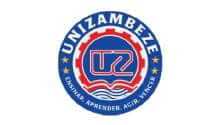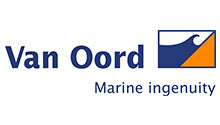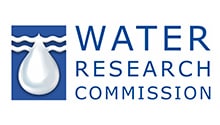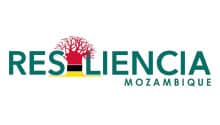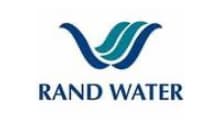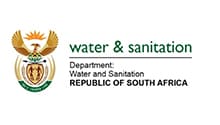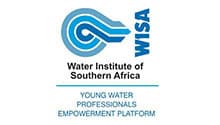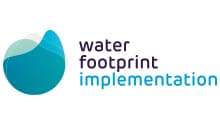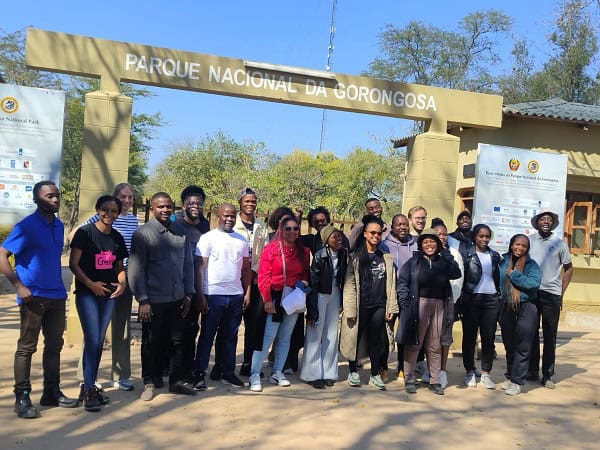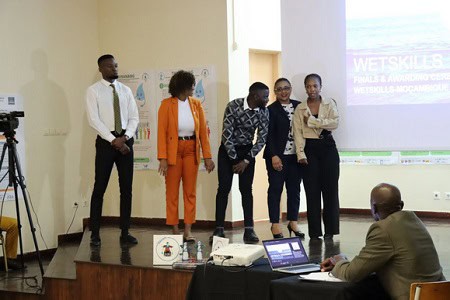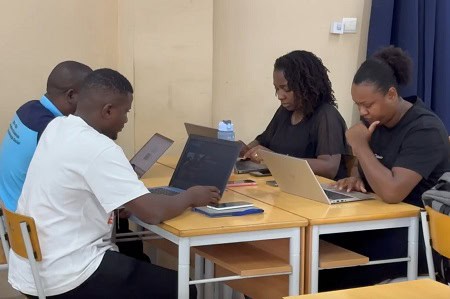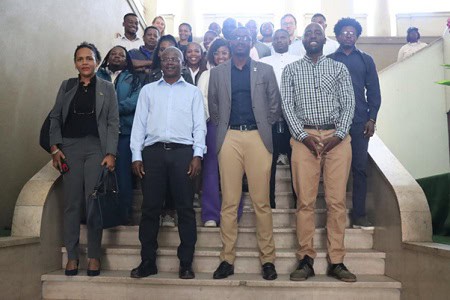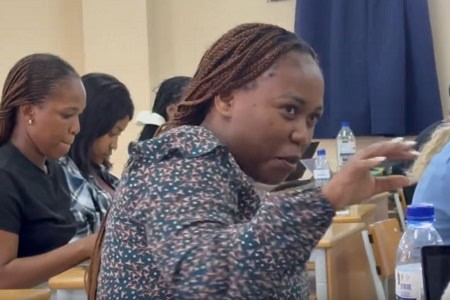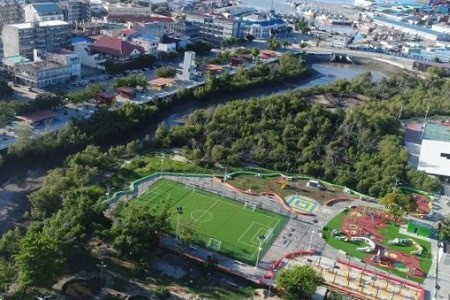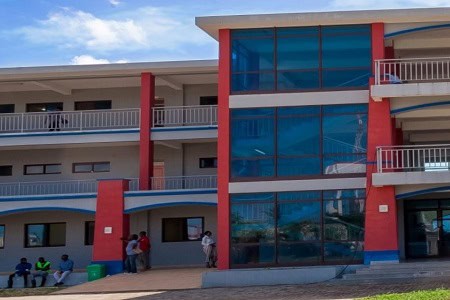
- This event has passed.
Wetskills-Mozambique 2024
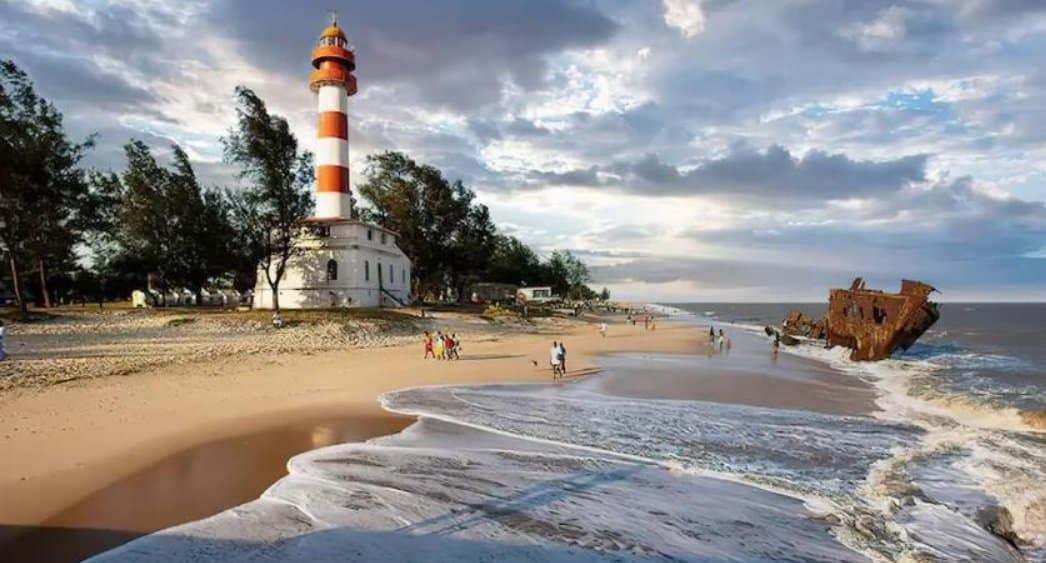

Wetskills-Mozambique 2024: Innovating for Climate Resilience and Impact in Beira
Follow us in the heart of Mozambique for an exploration of water innovation, aligned with the UN Habitat Conference on Climate Resilience. The Wetskills Foundation, in proud collaboration with the Government of Sofala Province, was delighted to organize the 2nd Wetskills Challenge to Mozambique. This event, taking place from July 13 to 25, 2024, aimed to unite a diverse cohort of local, regional, and international students, recent graduates, and young professionals. Together, we tackle the urgent water challenges exacerbated by climate change, through collaborative and innovative solutions.
Set against the beautiful backdrop of Beira, a city in need of climate resilience, this edition of the Wetskills Challenge is an integral part of the global dialogue on sustainability. Participants got the unique opportunity to engage directly with the themes of the UN Habitat Conference and the nation’s water challenges, bringing their fresh perspectives and innovative solutions to a global stage.
Honorable Cecilia Chamutota, a distinguished Wetskills alum, ambassador and current Secretary of State in the Province of Sofala, serves as a beacon of success and the transformative potential of the Wetskills experience. Having started her journey at the inaugural Mozambique challenge, Hon. Chamutota’s professional ascension underscores the significant impact and opportunities that await participants.
Wetskills-Mozambique 2024, with participants from Mozambique, South Africa and The Netherlands, started with a 2-day team-building in Parque Nacional da Gorongosa near Beira.
Voices of Impact: Alumni share inspiring insights on their Wetskills experience
Event info

Follow Wetskills
Joining this Wetskills Event – What do you get?
A unique learning experience where you will tackle real-life water challenges with your team!
- You will develop expertise in international cooperation, problem-solving, cross-cultural understanding, and interdisciplinary teamwork.
- You will hone your networking and presentation abilities through pitch and poster
- You will get the opportunity to connect with other international water students/young professionals.
- You will immerse yourself in the vibrant city of Beira, exploring water-related sites and engaging with local water professionals.
- Join parts of the UN-Habitat Conference programme in Beira (incl. Wetskills Finals & Awarding Ceremony)
- You will learn and deepen your understanding of the Mozambican water sector, gaining insights into key stakeholders, organizations, contemporary issues, and existing business opportunities.
- Upon program completion, receive a certificate of participation, officially joining the ranks of over 1300 Wetskills Alumni.
More information
Contact Craig Tinashe Tanyanyiwa at craig.tinashe@wetskills.com or Johan Oost at johan.oost@wetskills.com.
Event video & poster presentations at the Finals
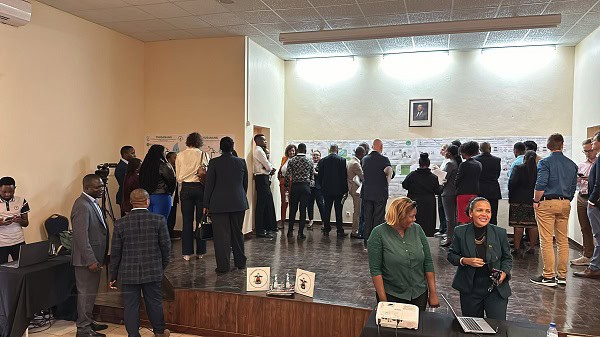
Event Blogs

Dedication and collaborative atmosphere
Weekend Work on Cases
Innovation round, teamwork & coach session
NBS in the Green Infrastructure Park
The Business Model Canvas
Event Cases

Case 1: Landscape approach for a climate resilient coast
Case owner: Van Oord (The Netherlands)
The city of Beira and the Sofala region are vulnerable to severe flooding and erosion, which are aggravated further by climate change. Therefore, it is crucial to compose a holistic landscape approach to achieve sustainable coastal protection. Building climate resiliency demands a long-term strategy that places the needs and capacities of the communities at the heart of its design. Moreover, empowering communities goes hand in hand with safeguarding local environment and optimizing the ecosystem services. Thus, Van Oord is striving to co-create an approach that protects the coastal landscape, meaningfully engages communities, and ultimately fosters socio-economic development. Please join us in reaching this goal!
Case 2: Solutions for resilient agricultural production
Case owner: Resilience B.V. (NL / Mozambique)
Resiliência Moçambique (the subsidiary of Resilience BV) is addressing the urgent challenges posed by climate change on smallholder farmers in Mozambique’s Beira Corridor. Despite favorable conditions for agriculture, unpredictable rainfall and extreme weather events are disrupting traditional farming practices, leading to reduced yields. Resiliência’s programs focus on improving agricultural practices, irrigation, water management, and business planning for smallholder farmers. We seek innovative solutions to improve rainy season crop production, ensuring food security and improved livelihoods for farmers. Join us in creating a resilient and sustainable future for Mozambique’s farmers.
Case 3: Integrated approaches to flood management
Case owner: Water Research Commission (South Africa)
In countries like Mozambique and South Africa, floods caused by heavy rainfall, riverine overflow and inadequate infrastructure frequently lead to severe threats, loss of life, property damage, and service disruptions. Climate change exacerbates these risks, causing even more frequent and severe flooding. This is due to their geographical location and extensive coastline, the semi-arid terrain, reliance on rainfed agriculture, rapid urbanisation and socio-economic status. How can integrated approaches to flood management, including watershed planning, floodplain restoration and sustainable water governance, mitigate and adapt to these impacts?
Case 4: Sustainable drinkingwater supply by increasing capacity
Case owner: Rand Water (South Africa)
Rand Water, a key bulk water supplier in South Africa, aims to provide high-quality drinking water to municipalities, industries, and other users. As demands are rising, Station 5 at Zuikerbosch will enhance its capacity in several phases, up to an extra 1,200 ML/d by 2030. The project includes vital infrastructure like pipelines, treatment plants, and disinfection systems. Essential for averting shortages and improving efficiency, this also requires stakeholder engagement and reduction of non-revenue water, to ensure long-term sustainability and community well-being. How can Rand Water realize this project, with increased capacity of infrastructure and community involvement, to ensure a sustainable and reliable water supply?
Case 5: Solutions to address urban flooding in Beira
Case owner: Central Regional Water Administration, Public Institute
Beira is a rapidly expanding city and holds over 600,000 inhabitants (INE, 2017). Cyclone Idai and the severe flood in 2019, caused extensive damage in Beira and surroundings, and exposed vulnerabilities in the city’s infrastructure, many of which have remained unrepaired even years later. Therefore, innovative urban planning and development is needed, with sustainable solutions for urban runoff and flood management, reducing the flood risk and suffering of vulnerable areas. How can local municipalities in Beira develop innovative and sustainable solutions to address the impact of climate change and urbanization on future flooding in Beira City?
Event Partners


